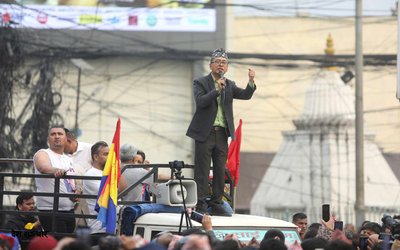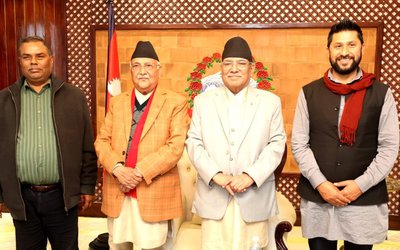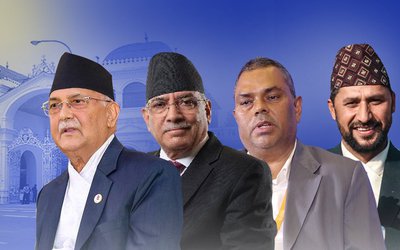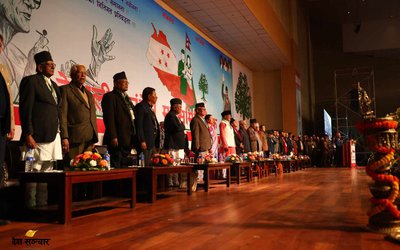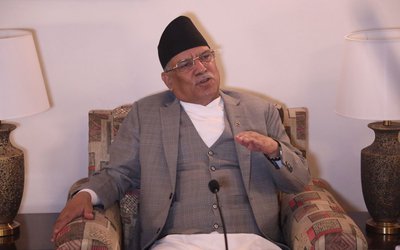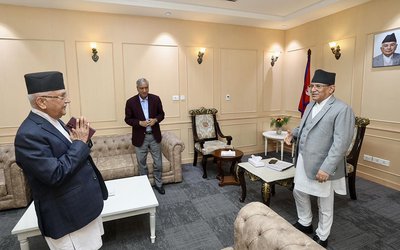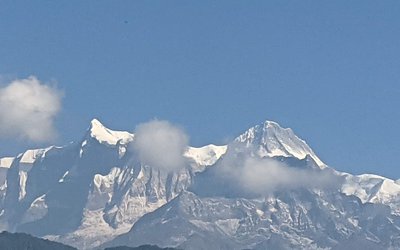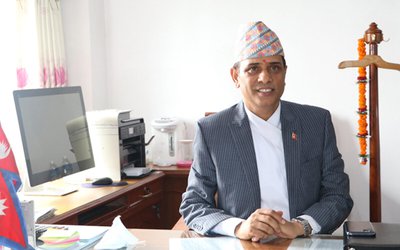The controversy over the Supreme Court decision in the case of Bharat Mani Jungam vs Prime Minister et al (November 25, 2011) has not died down. The Constituent Assembly (CA) and the Office of the Prime Minister can still appeal against the rejection of the review petition by the Supreme Court. The Supreme Court, in its verdict, had forbidden the Constituent Assembly from further extending its tenure. It also showed light as to what could be done to defuse the crisis, to maintain the rule of law, people's faith on judiciary and to produce a constitution. Rather than extending the CA tenure through repeated amendments of the constitution, the Supreme Court directed the CA to either complete the constitution drafting process and produce a constitution within the last extended period of six months or regain legitimacy for the Constituent Assembly through a referendum or go for a fresh election for the Constituent Assembly or follow any of the constitutional alternatives. It suggested the CA should proceed through any other constitutional means in line with the letter and spirit of the Interim Constitution. The issue drew everyone's attention. The case has a serious implication for the constitutional law of Nepal.
More attention was drawn by the fact that the CA and the Office of the Prime Minister contemplated for a review of the decision of the Supreme Court. The CA members felt that the Supreme Court, through its decision, placed a hook on the unlimited powers thought to be enjoyed by the Constituent Assembly. The CA felt fettered and wanted to explore its own possible avenues. This shows that the CA cannot produce the constitution even though there has been extension of the tenure for the fourth time. But this does not need to be a reason to panic. Like a constitutional expert, Louis Aucoin, put it, "building constitution through Constituent Assembly takes time."
There is no need to race against time and feel defeated. As it stands today, the review petition filed by the Constituent Assembly and the Office of the Prime Minister has been rejected by the Supreme Court. There are chances that the Constituent Assembly might appeal against the dirpit (rejection of the review petition by the court registrar).
Losses and gains: Implications of Review
The Constituent Assembly is composed of diverse parties representing Nepali people. It's so diverse that it is not able to move forward in the constitution drafting process. There is little chance that it might turn authoritarian. However, extending its own life again and again sets a bad precedent. The path it shows for the future will be dreary and could lead to tyranny. Thus it is of concern for everyone.
The Constituent Assembly has also irritated the Supreme Court's authority and Supreme Court exercised its power checking the authority of the Assembly. It is an unusual circumstance but has been envisioned in checks and balances of doctrine of separation of powers. Leaving aside the legal implications, the monetary expenses and exhaustion of other resources in going to a referendum or electing a new Constituent Assembly must always be taken into consideration.
Is it a fight for already lost battle?
Though the Supreme Court, respecting its decorum, did not equate the competence of Constituent Assembly members with extension of time repeatedly, the big question is whether the Constituent Assembly is competent to draft the constitution or not? Should it be considered by the Supreme Court if there is faith on the Constituent Assembly members that they can produce a constitution? If the Supreme Court considers that the Constituent Assembly members incompetent to draft the constitution then it might be wise to go for fresh elections. But if the competency of the Constituent Assembly members is not questioned and it is just a time factor, then probably the Supreme Court could review the decision. People at large ought to know that drafting the constitution through constituent assembly takes time and the time ought to be given to the Constituent Assembly. If it is felt by the people that the Constituent Assembly members are incompetent to draft the constitution then we are fighting an already lost battle. It's just that we are yet to realize it. Hope is the only thing that we have and the flame of hope should not die out.
To Conclude
It will be wise to disseminate the idea that drafting constitution through Constituent Assembly takes time. Experts in the field who know it have the duty to make people aware of this fact. They have to speak rationally when their voices are being heard. This might help public come to realize the situation. A no constitution now means a tremendous loss to the nation in terms of trust, money and energy and to tag 601 creamy layer Constituent Assembly members incompetent is a loss unimaginable to Nepali society. Can Nepal live up to this? Will it not give space to undemocratic forces to spread their wings? Should Nepalese be not cautioned that foreign influences will be even more in Nepal? It's time for everyone to think rationally in their capacity and avoid petty interest and rise up to the national interest. Generations of Nepalese still have future to live and the future they envisioned must be guided by democratic principles, which tells us the story and makes us realize the value of individual liberty, rule of law and a competitive society.
- TANAHU HYDROPOWER PROEJCT: A Significant Achievement
- Apr 15, 2024
- AMBASSADOR HANAN GODAR: Sharing Pain With A Nepali Family
- Mar 30, 2024
- VISIT OF KfW AND EIB TO NEPAL : Mission Matters
- Mar 25, 2024
- NEPAL BRITAIN SOCIETY: Pratima Pande's Leadership
- Mar 24, 2024
- NEPAL ARMY DAY: Time To Recall Glory
- Mar 15, 2024

